Here we are, facing a second weird summer but I’m as excited as ever to share my 2021 Summer Reads selection with you. These 11 books explore a huge range of people, life experiences and places including France, Algeria, Germany, Italy, Japan and the USA when the transporting power of fiction has never been more valued. Their biggest achievement was to pull me in and hold my attention, which might sound like the minimum requirement but feels closer to a miracle at the moment. I tell you my reasons for chosing each one, and in July there will be a shorter follow-up selection because I always miss a few gems first time round.
I’m delighted that four of these authors will be joining me as guests in the coming weeks – see Sofa Dates for details. If you like what I do, please help spread the word, and massive thanks to everyone whose appreciation recently earned me the honor of Best Reviewer of Literature in the Saboteur Awards.
Text adapted from publicity materials.
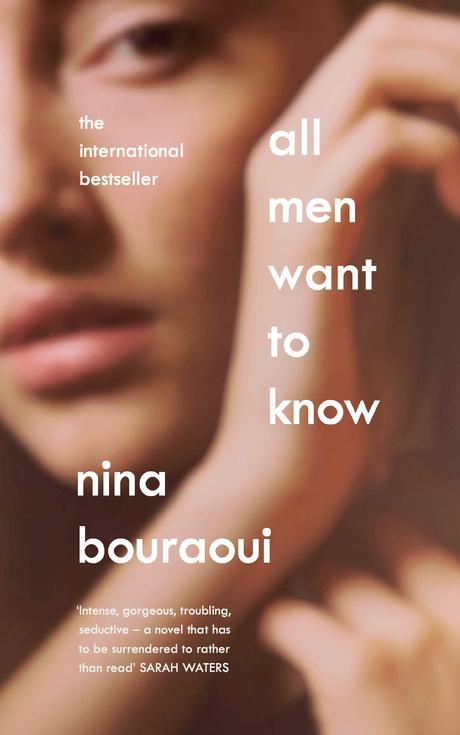
All Men Want to Know traces Nina Bouraoui’s blissful childhood in Algeria, a wild, sun-soaked paradise, with hazy summer afternoons spent swimming, diving and driving across the desert. Her mother is French, her father Algerian, and when racial tensions begin to surface in their neighbourhood, her mother suffers an unspeakable act of violence that forces the family to flee the country. In Paris, eighteen-year-old Nina lives alone. It’s the 1980s. Four nights a week she makes her way to The Kat, a legendary gay nightclub, where she watches women from the sidelines, afraid of her own desires, her sudden and intoxicating freedom. In her solitude, she starts to write – and finds herself writing about her mother.
Why I chose it: This international bestseller is the first book I’ve read in French since pre-pandemic and nothing has moved me as much this year. Written in fragments, it’s supremely eloquent on identity, both in terms of sexuality and living between two cultures. Beautiful writing and a huge emotional hit.
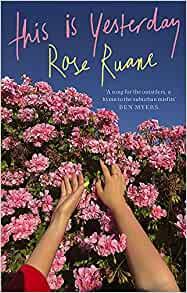
Peach is heading into her mid-forties with nothing to show for her youthful promise but a stalled art career and the stopgap job in a Mayfair gallery that she’s been doing for a decade. She is too smart and independent to believe her unhappiness will be cured by a relationship and a baby, too lonely to break her cycle of drunken hook- ups and nervous breakdowns. When Peach is woken one night with news that her father, who has Alzheimer’s disease, is in intensive care, she can no longer outrun the summer of secrets and sexual awakenings that augured twenty-five years of estrangement from her family. Now, as they all gather in the hospital, past and present collide, forcing Peach to confront the consequences of her actions – and inactions – throughout the years.
Why I chose it: I enjoy novels that show how women become who we are and Peach is both very recognisable and a complete one-off. I loved the writing, which delivers some frank and uniquely framed reflections on dementia, a subject I usually go out of my way to avoid, and female midlife, my personal homepage.
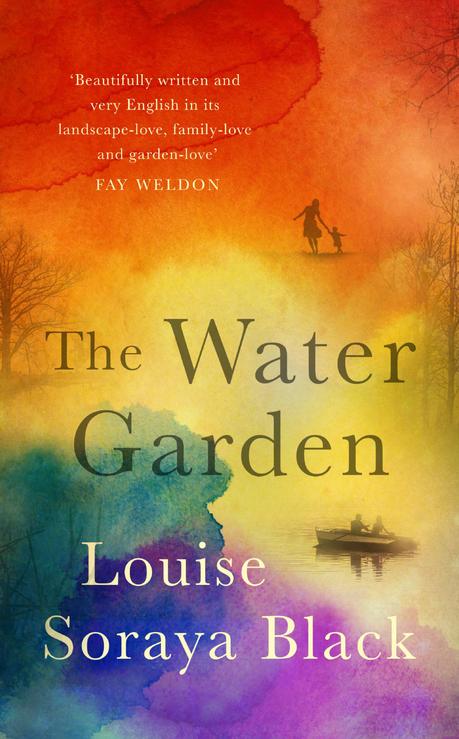
Sarah has given up her career and moved to the countryside to bring up her two young children, while her husband works long hours in London. Alone, she explores the fields and the woods near her home and discovers a lake, a memorial bench for a boy who drowned in mysterious circumstances, and Finn, a beautiful, troubled teenager. As Sarah pieces the mystery together, an uncomfortable attraction builds between her and Finn, threatening to destroy everything that she holds dear when it reaches a climax over one hot summer. Woven into Sarah’s story are the voices of two other women connected to her family – Maggie, the RAF nurse and Flavia, the Italian girl. As their stories unfold, a secret is revealed, binding Sarah and Finn in a way that they would never have guessed.
Why I chose it: This story really took me to another place, with its lyrical portrayal of the natural world and the complexity of human nature and relationships. Having shared some aspects of Sarah’s experience of marriage and motherhood, I found her situation relatable.
Sofa Date: 16 June – Louise Soraya Black on Writing about the English Countryside
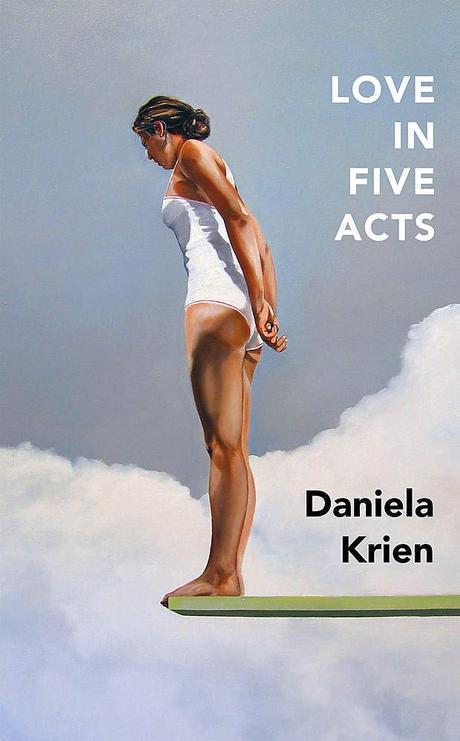
Bookseller Paula has lost a child, and a husband. Where will she find her happiness? Fiercely independent Judith thinks more of horses than men, but that doesn’t stop her looking for love online. Brida is a writer with no time to write, until she faces a choice between her work and her family. Abandoned by the “perfect” man, Malika struggles for recognition from her parents. Her sister Jorinde, an actor, is pregnant for a third time, but how can she provide for her family alone? Love in Five Acts explores what is left to five women when they have fulfilled their roles as wives, mothers, friends, lovers, sisters and daughters. As teenagers they experienced the fall of the Berlin Wall but freedom brings with it another form of pressure: the pressure of choice.
Why I chose it: As a fan of Daniela Krien’s debut Some day we’ll tell each other everything, I was keen to read this and it met my high expectations. Five interlinked women’s lives in miniature, they blaze off the page full-size. The direct way the author writes about sex is always my preferred approach to the subject.
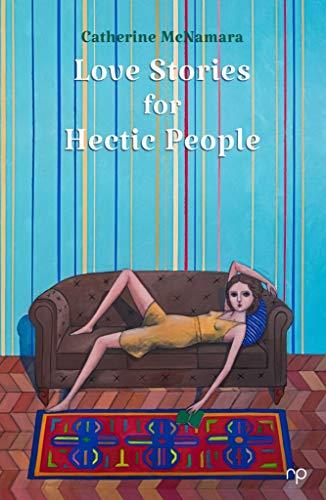
The thirty-three flash fictions of Love Stories for Hectic People explore the alignment of beings that is love. There is love that is vulgar, love that knows no reason; there is love that cradles the act of living, love that springs through the cracks; love that is slaughtered. These tales take place from Italy to Ghana to Greece and London and Tokyo, in grainy cities and muted hotel rooms; there is a Mafia murder, an ambulance rescue worker and a woman whose husband falls off a mountain. There is unchaste attraction and slippery, nuanced love; police violence and porn, and fishing too.
Why I chose it: Sensual, carnal, brutal, touching: these stories are low on word count but high on life in all its messy, painful and ecstatic variations. Bold explorations, delicious prose – this collection is a feast that goes on all night.
Sofa Date: 7 July – Catherine McNamara on Older Love
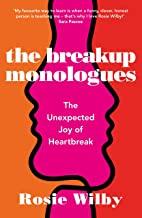
In 2011 comedian and podcaster Rosie Wilby was dumped by email…though she did feel a little better about it after correcting her ex’s spelling and punctuation. Obsessing about breakups ever since, she embarked on a quest to investigate, understand and conquer the psychology of heartbreak. This book is a love letter to her breakups, a celebration of what they have taught her peppered with anecdotes from illustrious friends and interviews with relationship therapists, scientists and sociologists about separating in the modern age of ghosting, breadcrumbing and conscious uncoupling. Mixing humour, memoir and science, she attempts to assimilate their advice and ideas in order to not break up with Girlfriend, her partner of nearly three years. Will this self-confessed serial monogamist and breakup addict finally settle down?
Why I chose it: This book sparked my interest in non-fiction about relationships and psychology, but I never expected it would end up on my Summer Reads selection. Fascinating, insightful and empathetic, it’s a more compelling read than many novels and considerably funnier.
Sofa Date: 14 July – Rosie Wilby on Love in London
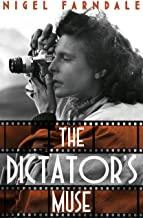
Leni Riefenstahl is the pioneering, sexually-liberated star film-maker of the Third Reich. She has been chosen by Hitler to capture the Berlin Olympics on celluloid but is about to find that even his closest friends have much to fear. Kim Newlands is the English athlete ‘sponsored’ by the Blackshirts and devoted to his mercurial, socialite girlfriend Connie. For the chance to win an Olympic gold, he must pretend to be someone he is not. Alun Pryce is the Welsh communist sent to infiltrate the Blackshirts. When he befriends Kim and Connie, his belief that the end justifies the means will be tested to the core. Through her camera lens and memoirs, Leni is able to manipulate the truth about what happens when their fates collide at the Olympics.
Why I chose it: It was worth overcoming my dislike of titles where female protagonists are described by their relation to men. Leni Riefenstahl was a fascinating woman, so admirable in some respects and absolutely not in others. An immersive narrative offering differing perspectives on integrity, culpability and self-delusion.
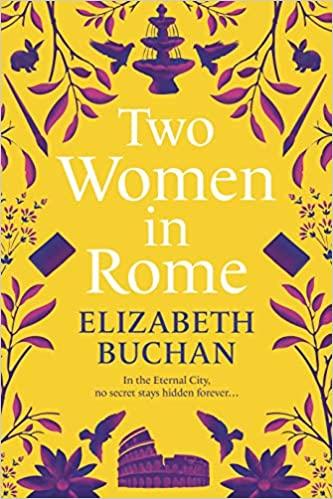
Lottie Archer arrives in Rome excited to begin her new job as an archivist. When she discovers a valuable fifteenth-century painting, she is drawn to find out more about the woman who left it behind, Nina Lawrence. Nina seems to have led a rewarding and useful life, restoring Italian gardens to their full glory following the destruction of World War Two. So why did no one attend her funeral in 1978? In exploring Nina’s past, Lottie unravels a tragic love story beset by the political turmoil of post-war Italy. And as she edges closer to understanding Nina, Lottie begins to confront the losses in her own life.
Why I chose it: This novel has a seductive, retro-roman atmosphere that swept me away; I was there, walking the streets, surrounded by Italian chatter and gorgeous people (despite being in rainy Leeds at the time). The love story is gloriously romantic and poignant.
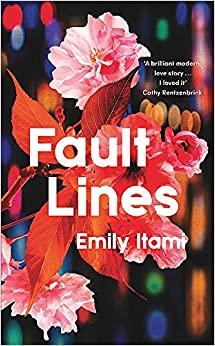
Mizuki is a Japanese housewife. She has a hardworking husband, two adorable children and a beautiful Tokyo apartment. It’s everything a woman could want, yet sometimes she wonders whether it would be more fun to throw herself off the high-rise balcony than spend another evening not talking to her husband or hanging up laundry. Then, one rainy night, she meets Kiyoshi, a successful restaurateur. In him, she rediscovers freedom, friendship, a voice, and the neon, electric pulse of the city she has always loved. But the further she falls into their relationship, the clearer it becomes that she is living two lives – and in the end, we can choose only one.
Why I chose it: For me it’s the strong sense of place and Japanese culture that makes this short novel a worthy addition to the never-ending body of fiction on marital and domestic dissatisfaction. The perfect long-haul escape, albeit liable to induce its own frustrations in the form of wanderlust.
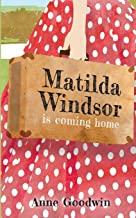
In the dying days of the old asylums, three paths intersect. Henry was only a boy when he waved goodbye to his glamorous grown-up sister; approaching sixty, his life is still on hold as he awaits her return. As a high-society hostess renowned for her recitals, Matty’s burden weighs heavily upon her, but she bears it with fortitude and grace. Janice, a young social worker, wants to set the world to rights, but she needs to tackle challenges closer to home. A brother and sister separated by decades of deceit. Will truth prevail over bigotry, or will the buried secret keep family apart? Anne Goodwin’s third novel draws on the language and landscapes of her native Cumbria and on the culture of long-stay psychiatric hospitals where she began her clinical psychology career.
Why I chose it: The light wins in this novel, which manages to be warm, uplifting and surprisingly funny for all the sadness and injustice portrayed. The author’s expertise as a clinical psychologist comes through strongly in her ability to bring the reader onboard with Matilda’s altered perceptions – she’s a really endearing and memorable character.
Sofa Date: 21 July – Anne Goodwin on setting a novel in a psychiatric hospital
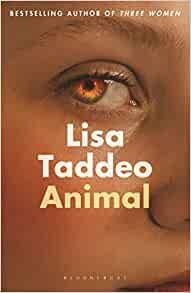
“I drove myself out of New York City where a man shot himself in front of me. He was a gluttonous man and when his blood came out it looked like the blood of a pig. That’s a cruel thing to think, I know. He did it in a restaurant where I was having dinner with another man, another married man. Do you see how this is going? But I wasn’t always that way. I am depraved. I hope you like me.”
Why I chose it: One long primal scream against misogyny and sexual violence, Taddeo’s first novel warrants every trigger warning going. Some things are sacrificed when everything is this amped up; despite my issues with Three Women, its calmer tone was more to my taste. Although Animal has something of an American Psycho vibe, it’s hard to compare it with anything. Weeks later, I feel chemically altered by this book. Recommended if you need a cleansing bout of feminist rage and man-hating, or at least that’s what it did for my holiday mood.
I hope there’s something here that grabs you, and if you fancy the trip none of us can take to Paris and Provence, my own new novel Scent is going down well with readers, find out more here.

